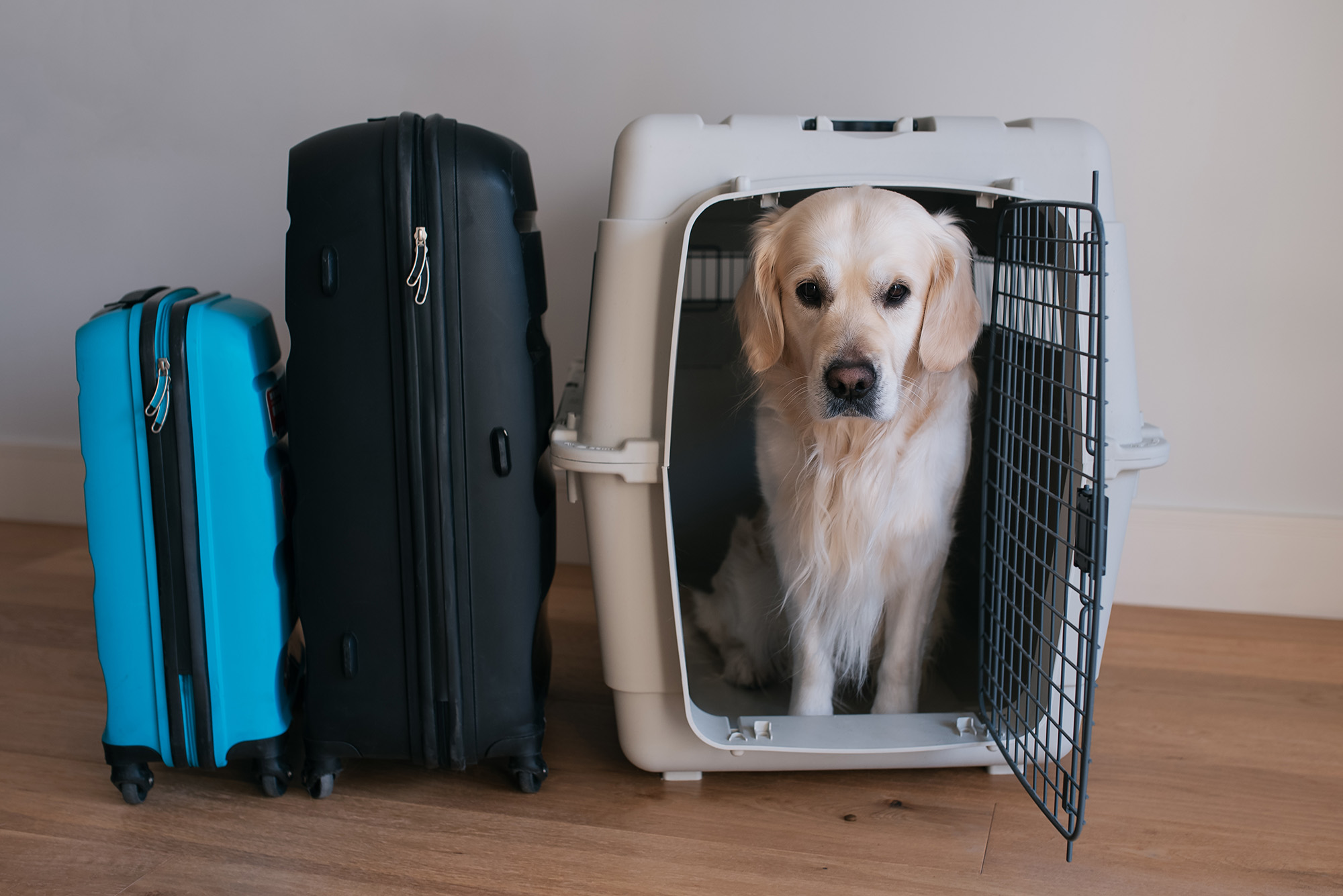Holidays! Whether you’re seeking out a bit of relaxation, having some family time or travelling for business, taking a journey can be stressful – especially if you’re taking pets with you! Many pet owners, very understandably, wish to take their beloved pets with them when they travel. This can be a complicated process, so understanding the system is essential when planning a journey.
Read on for our essential guide to travel with pets.
What does my pet need to travel abroad?
The requirements for pet travel vary as to where you are journeying to – specifically, whether you are going to an EU country (including Northern Ireland) or a non-EU country.
The EU or N. Ireland
Pet dogs, cats, and ferrets travelling to the EU all require a microchip and valid rabies vaccination. Tapeworm treatment is needed if travelling to Finland, Ireland, Northern Ireland, Malta or Norway. Your pet will also need a valid animal health certificate (AHC). The Northern Ireland regulations will be scrapped if the Windsor Framework is approved and enacted.
A non-EU country
Travelling to a non-EU country can be more complicated, and it is recommended that you thoroughly check the individual entry requirements of the specific country. In general, you will need an export health certificate (EHC). This will be sent to an official veterinarian, who you can nominate. If you’re in England, Scotland or Wales, you’ll also need an export application form (EXA).
- A microchip
The microchip must be placed by a suitably qualified person – including a vet or veterinary nurse. The chip must be placed before or at the same time as the rabies vaccination and recorded in the AHC or EHC.
- Rabies vaccination
Pets must be at least 12 weeks old to have the rabies vaccine, which must also be performed by a veterinary surgeon. You must wait 21 days after the vaccination before you can travel, with day 1 being the day after the vaccination. Your pet doesn’t need repeated vaccinations every time they travel, as long as the vaccination, or booster, is still valid.
- AHC or EHC
The Animal Health Certificate (AHC) and Export Health Certificate (EHC) are the travel documentations that replaced the pet passport travel scheme when Britain exited the European Union. These health certificates can only be issued by vets who have undergone extra training to be qualified as an O.V. (official veterinarian). Pet passports issued in Great Britain are now no longer valid for travel.
AHCs and EHCs are lengthy documents which take significant amounts of time to complete correctly. Pets will also need a new health certificate every time they travel, rather than using the same passport again and again. These factors can make the process take longer and be more expensive than pet travel used to be.
- Tapeworm treatment
Certain countries (Ireland, Malta, Norway, Finland) require tapeworm treatment with an accepted product 24-120 hours before you arrive. If you are travelling to a different country to those listed, and then returning to the UK, you will require tapeworm treatment 12-120 hours before re-entering the UK. If you are only going for a very short trip, this medication may be given in the UK before you go. Check with your vet for guidance on this.
- Other medical clearances
Depending on where you are travelling to, some countries may have additional requirements – often blood tests to prove that your pet is free of specific infectious diseases. In some cases, paired tests 3 or 4 weeks apart may be necessary to prove no active infection, so it is really important you research well in advance of your planned travel date.
The government has issued guidelines for pet travel here.
Plan in advance
Travelling with pets is no small undertaking. It can be extremely stressful if approached with haste, or without determining the correct requirements. When planning a journey with pets, do your research and give yourselves plenty of time. You will need to find a veterinary practice who can provide services from an Official Veterinarian, and book your appointments for things like vaccinations, AHCs, and tapeworm treatment well in advance. It is your responsibility to determine the requirements of travel to your specific destination.
Other things to consider
Depending on the species of your pet and the length of the journey, you will need to consider some practicalities. Travel can be stressful for pets, so plan in plenty of breaks if the travel time is long. Consider methods of restraint, such as a large and sturdy container for cats, and whether you need additional insurance. If you’re worried about issues such as anxiety or travel sickness, discuss these with your vet.
Before you travel, think about how you will manage with your pet abroad, especially if the trip is short-term, such as a holiday. Consider the impact of weather, change in routine, new surroundings and potential exposure to new and unfamiliar disease risks. Take something familiar smelling with you, try to keep them on the same food they have at home and keep to the same routines as much as possible. Speak to your vet about disease prevention and discuss ways to keep them safe abroad.
Travel abroad: summing up
Taking a pet with you on a journey can be a smooth process but requires plenty of forward planning. Your pet’s requirements will depend on your destination, but will likely involve a microchip, a rabies vaccination, a health certificate, and possibly tapeworm treatment as a minimum. Take some time to understand the exact requirements and discuss a schedule of events with your vet. Planning ahead can help both you and your pet have a stress-free travel experience.



